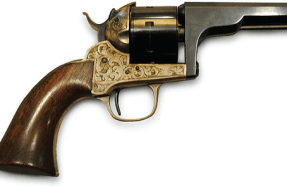FOR THE CAUSE


On the afternoon of February 3, 1864, while taking a leisurely horseback ride about five miles outside Alexandria, La., Confederate Major David French Boyd was stopped and forced into custody by a small band of so-called “Jayhawkers.” These brigands, better known to history perhaps as “Louisiana Scouts,” were draft dodgers, deserters, and Unionists who, after robbing people and places for their own benefit, would hide out in the swamps to evade both military and civilian authorities.
Boyd was chief engineer on the staff of Maj. Gen. Richard Taylor, commander of the District of West Louisiana, and Taylor wasn’t about to disregard this transgression. He instructed his cavalry to hunt down the criminals and ordered that any armed man of draft age who could not account for himself was to be shot on the spot. To a subordinate stationed at Fort DeRussy, Taylor directed: “No officer should be permitted to travel north of the [Red] river from here [Alexandria] to Marksville until we root out this band. At present they number 15, but the whole population sympathize[s] with them.”
Public opinion be damned, however—Taylor planned to do all he could to stop these hoodlums from assaulting and kidnapping his men.
Nearly a week after Boyd’s abduction, his captors decided to sell him to Federal forces occupying Natchez, Miss. But en route to Natchez, as the group crossed the Black River, the small skiff they
You’re reading a preview, subscribe to read more.
Start your free 30 days





